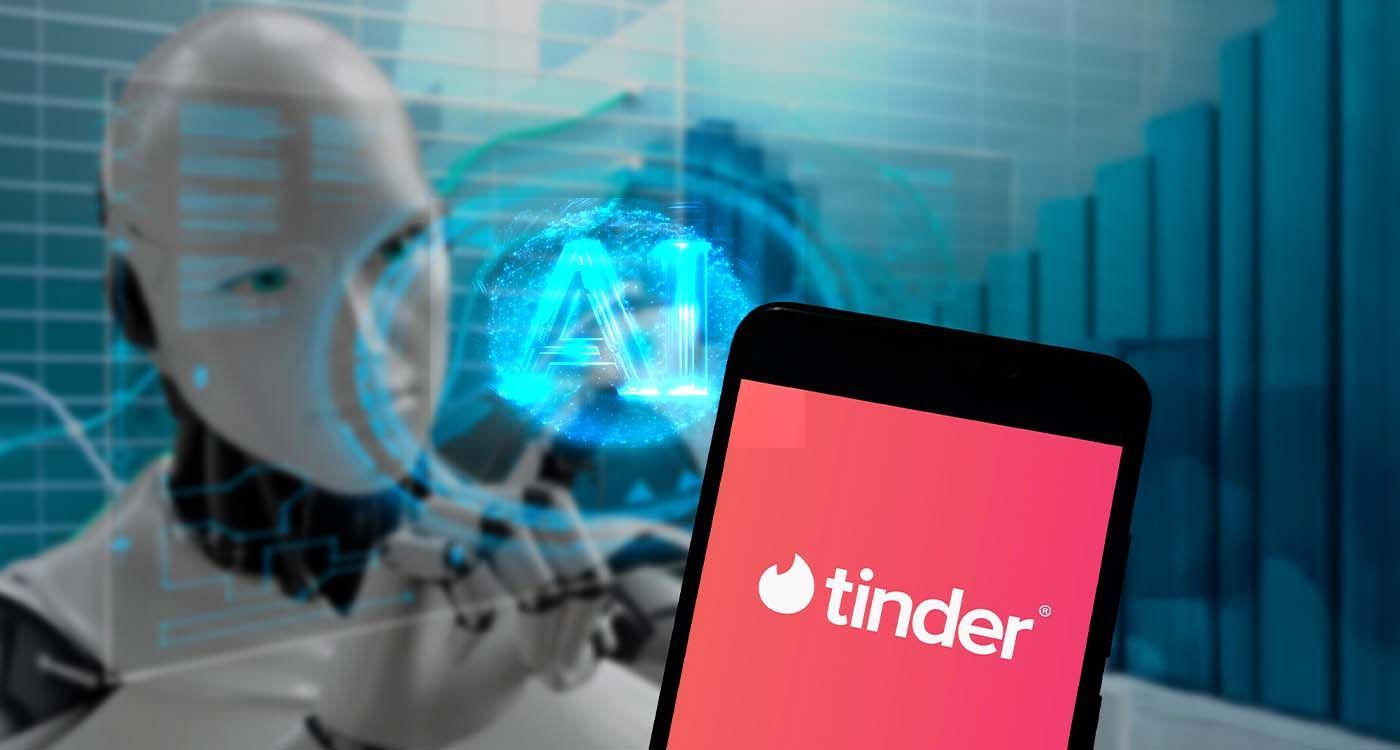- Home
- Highlights
- Tinder AI Connection: When the Algorithm Plays Cupid

©This Is Beirut
With digital apps shaping more and more of our love lives, Tinder – the world’s leading dating platform with over 55 billion matches recorded – is taking a new step forward. The growing integration of artificial intelligence (AI) is not just transforming our search for love; it’s reshaping the very nature of human interaction, raising serious questions about the authenticity of connections, the security of personal data and the ethical boundaries of these technologies.
Originally known for its simple and addictive swipe-left or swipe-right system, Tinder is now relying on sophisticated algorithms to refine and personalize matches. Powered by AI, the app carefully analyzes users’ preferences, habits and interactions to deliver increasingly compatible connections. The goal is clear: reduce the frustration of failed matches and boost the chances of finding meaningful relationships.
Among its recent standout features, Tinder now uses AI to select users’ most appealing profile photos. Tested last year, this innovation aims to make profiles more attractive and boost user engagement. In addition, the platform has introduced new search categories – such as “Serious Relationship,” “Long-Term Partner,” “Non-Monogamy” or “Just for Fun” – to help users clarify their intentions and avoid misunderstandings, meeting the growing demand from people frustrated by ambiguity.
AI Meets Intimacy: The Allure and the Risks
This algorithmic intrusion raises serious concerns. Personal data security and privacy are at the forefront, as analyzing individual preferences requires access to sensitive information – increasing the risk of leaks or misuse. Additionally, AI can unintentionally reinforce biases, creating subtle forms of discrimination within dating apps.
Beyond the technical aspects, the authenticity of relationships formed under AI supervision also comes into question. The growing use of chatbots capable of suggesting – or even composing – messages can introduce an artificial dimension into human exchanges, deeply affecting the quality of the connections made. When conversations are influenced, or even guided, by artificial intelligence, interactions lose a significant part of their spontaneity, calling into question the very essence of the online dating experience.
This tension between technology and authenticity is exemplified in controversial services like CupidBot. For around 15 euros a month, the app uses AI to flirt on Tinder on a user’s behalf: selecting profiles, initiating conversations and even setting up dates. Such automation raises serious ethical questions. When users interact unknowingly with a bot, transparency and consent become critical, creating unprecedented legal and moral challenges.
Tinder has also launched Game Game, a playful experience developed with OpenAI. This immersive voice-based flirting game uses GPT-4o to simulate dating scenarios in a judgment-free virtual space. While intended to be both educational and entertaining, critics have pointed to its lack of realism and technical glitches, highlighting the current limits of AI-simulated human interaction.
Love in the Age of AI: Between Reality and Fiction
The impact of AI on romantic relationships isn’t limited to dating apps. More striking cases are emerging, revealing the deeper effects of this technology on human intimacy.
Some individuals form strong emotional bonds with AI-powered virtual companions, even preferring them to real human interaction. This dependence can lead to greater social isolation and emotional challenges, highlighting the psychological risks of excessive immersion in relationships with non-human entities.
Cinema has also explored these themes, offering poignant stories about human–AI relationships. Spike Jonze’s Her follows a man who falls in love with his operating system, powered by advanced AI, highlighting the emotional complexities and ethical dilemmas of such a bond. Likewise, Maria Schrader’s I’m Your Man examines the dynamic between a woman and a humanoid robot designed to be her ideal partner, questioning the nature of love and authenticity in a relationship with artificial entities.
Although fictional, these stories echo the emerging realities of a society where the line between human and machine is increasingly blurred. They underscore the urgent need to consider the consequences of integrating AI into our emotional lives.
Toward the Ethical Regulation of Algorithmic Love
Amid these rapid developments, the future of digital dating under algorithmic influence raises numerous questions. Innovations such as automatic generators for profile photos or biographies may improve the efficiency of matches, but they may encourage uniformity and superficiality in interactions. Ethics and transparency are therefore essential prerequisites for the responsible use of these technological tools.
In this context, regulation becomes a central concern. Platforms must clearly explain how they use personal data and explicitly inform users when they are interacting with AI rather than a human. This transparency is a crucial step in maintaining user trust and ensuring an ethical framework that upholds fundamental standards.
Ultimately, while the deep integration of AI into online dating undeniably opens fascinating new possibilities for digital love, it also calls for greater vigilance regarding its ethical and human implications. As the algorithm assumes the role of a digital Cupid, it is essential to ensure that love remains, above all, a deeply human affair.
Read more




Comments